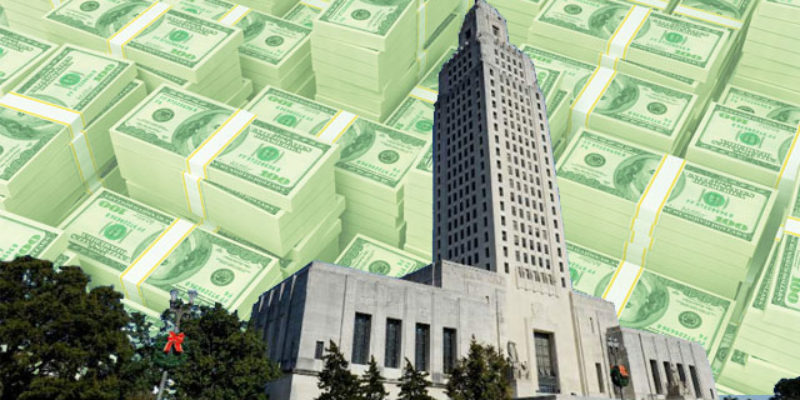Editor’s Note: A guest post by Jim Patterson, Vice President of Government Relations and Director, Taxation and Finance at the Louisiana Association of Business and Industry
It was the best of times, it was the worst of times, it was the age of audacious change and then more of the same. Though tax reform is the order of the day, we are faced with the stark contrast of the meaning of tax reform in Louisiana and on the national level. On one hand, tax reform at the state level has so far lead to perennial burdens on the private sector. On the other, tax reform at the federal level has the potential to be a catalyst that will energize and spur economic growth. While economic conditions deteriorate and the lack of actual tax reform holds back investment and growth, the new President and Congress are promising long-awaited tax reform to help restore our economy, and Congress is positioning itself to deliver on that promise.
Although health reform, immigration and a Supreme Court nomination dominate the news cycle in these early weeks of the Trump Administration, tax reform is already taking shape behind the scenes. Congressional Ways & Means Committee staff members are currently negotiating the details of a “consensus” tax reform package that can be supported by many in Congress and the White House.
President Trump has been adamant about his desire to reform taxes for U.S. businesses to increase their competitiveness in the global marketplace. As the U.S. House and Senate leadership develop their plans, they have noted that private sector expansion will trigger higher revenues for government. The mere talk of lower federal taxes, coupled with administrative actions taken to reduce overregulation from federal agencies, has already had a positive impact, prompting a number of businesses to publicly announce new investments and activities in anticipation of an improved economy.
This is refreshing when contrasted with calls by some state leaders, who enacted close to $2 billion in new taxes on businesses to fund state and local government in the past few years. This approach caused numerous companies trying to survive in our state’s sluggish economy to reconsider their plans for expansion and investment, only fueling the downward pressure on the economy and jobs. More taxes on Louisiana’s employers only serve to reduce their business activity, along with the jobs they produce and the revenues they generate for state and local government.
While there is naturally some uncertainty as to what federal tax reform will look like in 2017, we anticipate that since revenue measures must originate in the House, the eventual bill will be based largely on the House GOP tax reform plan. The basic outline of this plan can be found in the Better Way Blueprint released last year by House Speaker Paul Ryan. While passage of a tax reform measure was initially anticipated sometime this spring, it now appears to be slipping to later in the year. According to Speaker Ryan, the House will turn its full time and attention to tax reform beginning in April, with the goal of passing a bill by August. LABI has produced a summary of the federal tax reform proposals, which is available here.
Tax reform is never easy! It has been thirty years since the last major rewrite of the U.S. tax code was enacted. Since then, it has evolved back into a complex, inequitable behemoth that makes American companies uncompetitive with those in other countries, serving as a significant drag on our nation’s economy. The same is true for Louisiana’s overly complicated state tax structure, which compares poorly with those in other states.
Louisiana must not continue its lamentable recent course of burdening businesses fighting to keep their doors open. The Tax Foundation, which is nationally recognized for its analyses of state tax systems, reduced its ranking of Louisiana’s business tax climate to 41st out of 50 for 2017, placing our state among the ten worst states in the country. It ranks Louisiana 30th for business property taxes, 36th for corporate taxes, and 50th for business sales taxes. The Legislature and administration should give genuine consideration to energizing our private sector, just as Congress and the President are preparing to do with their reform proposals.
Reform, both within the U.S. and in Louisiana, has often been promised without coming to pass. There are, of course, numerous challenges to achieving it at either level this year, not the least of which will be support from average citizens for the reform initiatives. Ultimately, tax reform should lead to a more simple, neutral, efficient, equitable and transparent tax system that can help individuals, their employers, and the economy. One can only hope that is what the Congress and our Legislature, in their respective turns, finally deliver to the people this year.
Advertisement
Advertisement

